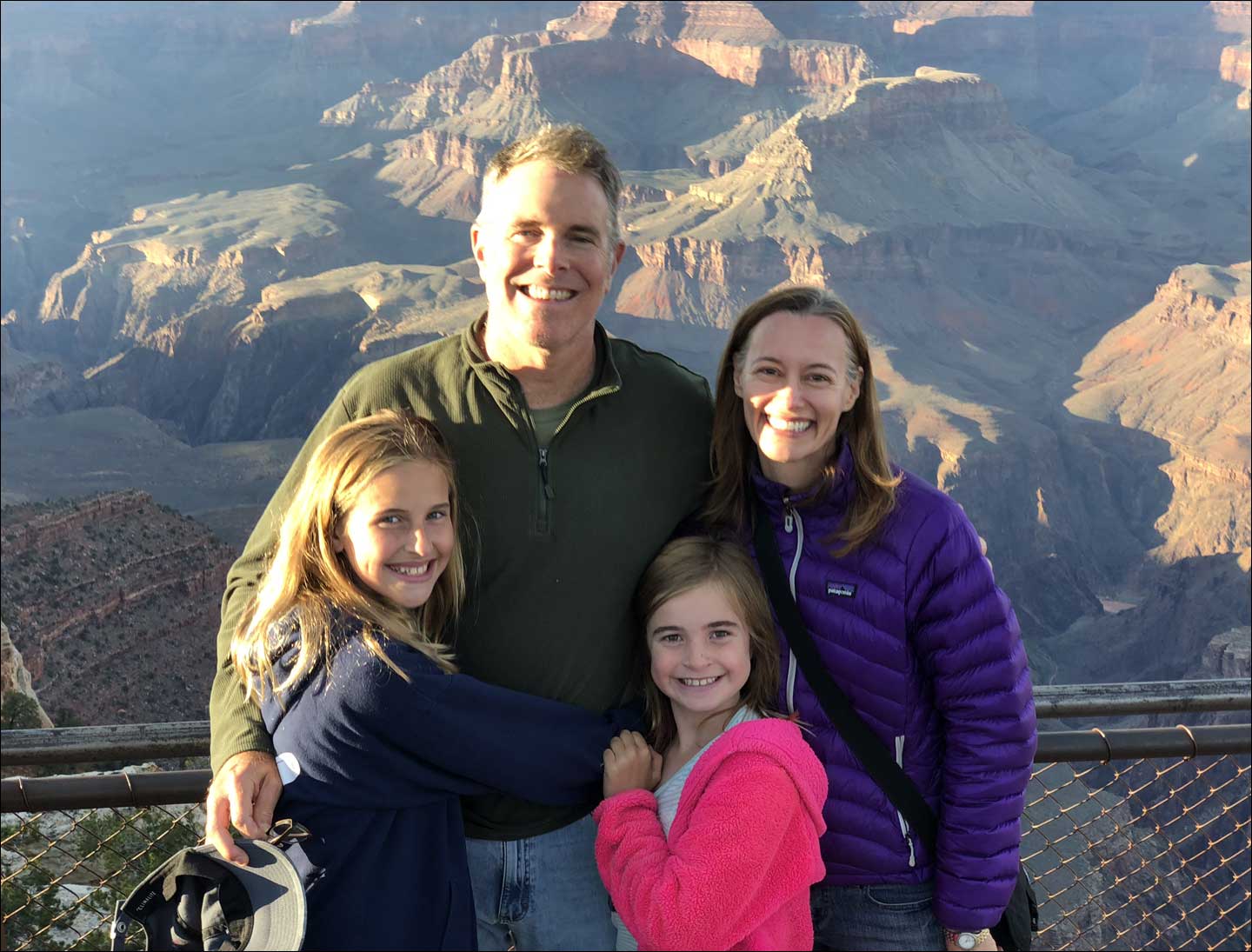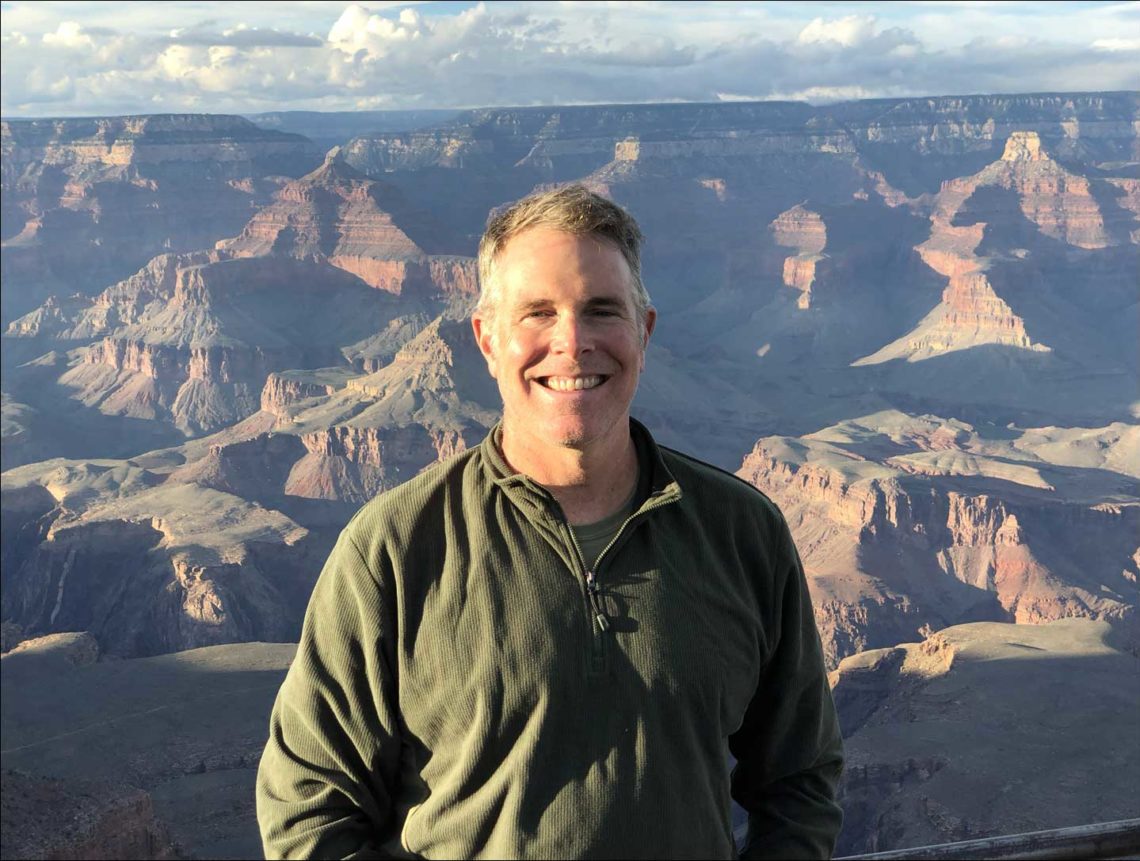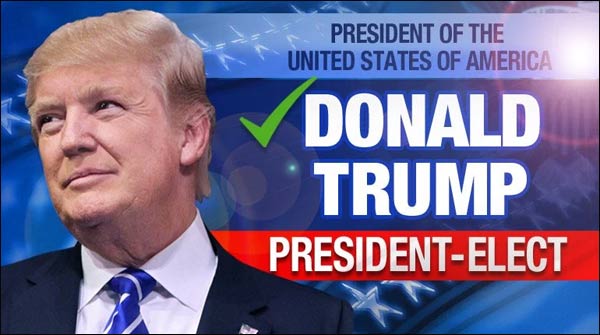I spent the Christmas holidays visiting family in the Bay Area. In doing so I had the opportunity to speak at length with two young men, one 30 and the other 35 years of age. They spoke to me about “their dreams for the future,” as they sought to reconcile their hopes for making money while contributing to the world. They both had good jobs and were successful in the workforce up to a point, but neither want to remain where they were forever. Both wanted to improve their position and find the “perfect fit” for their ideal futures. They had hopes and dreams. They were ambitious. They would make their mark, in their own different ways, on the world. They were like Jay Gastby, their dreams full of hopes for their ascendancy. It all lay ahead of them.
I listened closely. I listened respectfully. But I could not help reflecting on how differently these men looked at the world compared to me, some twenty years their elder. Different in what way? Well, it is simple: I don’t really have grandiose plans for the future. My dreams and hopes are much smaller in scope. My world seems smaller, in contrast. Was it the difference in age that separated us? Or something deeper?
My plan is to work eight or nine more years and then retire as a public school teacher. I hope to get my daughters into strong universities and help them to pay for it. After that, I ask almost nothing from life. I am done. Or at least that how it looks to me right now. I don’t look at the world of work and reflect on the future, or even the present. I used to think about schools, students, and education all the time. I was a veteran high school teacher; I was an adjunct professor of education. Teaching and education was my vocation — my life.
That was then. How about now?
What about education, pedagogy, and the role of learning in American life nowadays? I used to have PLENTY of opinions. But no longer. I come across some highly publicized article on schools or education, and I usually skip it now. I don’t bother to read it, even as it directly references my profession. I think to myself that I am pretty sure I have heard everything in that article many times already — boring. The situation is not going to change, blathering commentators notwithstanding. I have been watching closely for 25 years and that is what I have seen. Now I am on the down-slope of my career. And while I always want to be able to look my students in the face and know I am doing a good job for them, I have little time for education journalists, university administrators, school activists, or others and their opinions about schools and education. Blah, blah, blah, blah — BORED! After two and half decades I am burned out. The amount of talk and pontificating rarely transfers into real action or positive change. So much rhetoric, so little action. I will do what I can in my classroom and ignore all the outside noise. That is where I might actually do something of value. I have no hopes that “the system” will improve. I am tuned out.
So at almost 52 years of age, what am I tuned into? What do I want? I would like eventually to retire with an income of some 100k per year (pension plus investments). That is doable. Take the equity from my expensive California house and move out of state and live without a mortgage. Enjoy some peace and quiet in the autumn and winter of my life. The 30 year old I spoke with talked of starting an interesting business (indoor golf driving range) and making gobs of money, and the 35 year old talked of inventing some new aid to humanity or “making a difference,” but to the 51 year old (me) having enough to live comfortably but not extravagantly excites. I want peace and freedom; I don’t need much else. My hopes, and my world, have shrunk. I don’t care about success or riches; my ego is not engaged. I want tranquility. I want to retire. Peace.
What do I care about the Civil War in Syria? Wars and rumors of wars? The crisis in Venezuela? What do I think about systemic inequality in my own country? About affordable housing in California? Global warming? The lack of parental leave for parents? The rights of unborn children? The opioid addiction crisis? Gun control? Police brutality?
Well, I have opinions on all these subjects. But I am less than totally preoccupied by them. Increasingly they appear to be problems for the next generation. And I feel so small as just one person that I cannot make much difference, although I will militate for causes when so moved. I am not inert. I will vote; I always vote. Yet I watch my fellow Americans, especially the politically passionate among them, makes things worse rather than better.
Maybe there is a generational difference at work. I watch younger Americans (ie. “millennials”) thrash this way and that with President Trump or with some other issue that chaps their hide, and I am pretty convinced they are going to make a hash of trying to make the problem better. It is like watching young people hungry for romantic connection try to do so at a crowded bar or on an dating app — you see the motivation and the attempt, but you can see it is probably not going to work. And you wish good luck to them! But you already married and have children. You figured all that out, more or less.
But a voice in my head asks me if I perhaps should have more “dreams for the future”? Should I not have hopes for myself or the world around me? Am I too reconciled to the “way things are”? This internal voice troubles me.
Not long ago I read an article about “moral clarity.” It talked of young people and the powerful emotion that moral clarity gave to them in arguing for political or social reform. After decades of reading, studying, and thinking about the topics that make up the “culture war” arguments in American life, I have little certainty about anything. What about abortion – a subject I taught and studied for years? I have no “right” or “wrong” convictions on abortion and reproductive rights — only many, many gradations of complicated and ambivalent opinions. Gun control? Very complicated shades of gray are my thoughts about guns and gun control in America with little that is “black” or “white.” Give me one argument, and I will come up with two or three objections or qualifications. The role of race and policing in the United States? “Black lives matter” and support the “thin blue line” bumper stickers do not begin to encompass what I think. I have always hated bumper stickers and sloganeering and if “moral clarity” means this, I won’t join.
I teach economics to high school seniors. After months of teaching about 21st century capitalism and its effects on American workers without much schooling or education, it seems to me and my students that our neighbors who have little to offer the marketplace are most often doomed to hard lives. Their chances of buying a house and helping to offer a good quality of life for their children and themselves are limited. Too many students fit into this category; America shafts them. Many don’t have the skills or initiative to thrive in the mostly capitalist system we live in. But what can I do? Nobody really cares what I think. I have learned that most definitely. Learned that fact over decades as a high school teacher.
During the years between 2002 and 2012 as an American history teacher I tried to get my students to care about the symbols of the Confederacy and whether they stand for “Southern pride” or white supremacy. (I initiated these conversations at the end of an extensive Civil War unit.) My students did not seem to care all that much. I hyped the argument as much as I could, but I was more engaged than my students seemed to be. But after I stopped teaching that class the zeitgeist changed around 2016, and Confederate monuments and calls for their removal became trendy. People did seem to care. But I didn’t care so much anymore. I didn’t even read about the articles about those controversies in the newspapers. I saw the headlines and turned the page to read something else. I was done.
The world is as it is. In some ways it will improve over time, in others ways decline.
I remember my father in 2011 ranting to me against the re-election of President Obama. “The future of who we as a people are is at stake this November in the general election!” he exclaimed. I pointed at a man sitting by himself at the other side of the restaurant and replied, “That guy’s life is going to be pretty much the same no matter who wins that election.” I was right. Or at least I was mostly right.
If I come to see the world is terms of greater and greater complexity, it usually means I heed few or no calls to the barricades. Give me a “true believer” and in ten seconds flat I will poke holes large enough to drive a tank through. Does this make me a cynic? A person who believes in nothing? No.
But does it mean I am never moved to take a stand because of the “moral clarity” I see in an issue? Not never. Just very rarely. In real life almost never. I read and think deeply about politics, but never in my 51 years have I been to a march or a protest. But I have seen many, many political protests that I am glad I did not attend. I am glad I was not one of those protesters against the Gulf War or the Iraq War or about immigration law, or one of those carrying a placard of a dismembered fetus in an abortion protest. I detest President Trump and his reality TV show of Washington D.C. politics, but I don’t want to be a part of the “Resistance” here in California. I see today the Los Angeles teachers are out on strike. I am sympathetic to them to a point, but I have highly complicated and ambivalent feelings about the schools and teachers in Los Angeles, since I was a public school teacher there for three years. (I have worked in multiple different school systems over almost two and a half decades, and never did I see as much bad teaching and educational dysfunction as I did in the Los Angeles Unified School District, a fact only partially mitigated by the fact that almost all the students there were impoverished and ill prepared. As we LA teachers used to say, “There is the right way, the wrong way, and the LAUSD way!”) I would never march with the UTLA. They are as much a part of the problem as anyone.
I would not march with teacher trade unions or for immigration or anti-war or abortion or guns or taxes or any other issue. (Such has been the case in the past, but who knows in the future?) I could definitely identify some bad guys out there, but I could never really see any “good guys.” I never did find a political cause that was my “home.” Maybe I did not look hard enough?
There are so many causes I would never march for. (But what causes would you march for?) There are so many jobs in this world I don’t ever want to have. (But what about the jobs you would like to have?) There are so many places I would never want to live. (But where do you want to retire to?)
In my thirties there were things I wanted to do in life. I have done many of them. What do I want to do in my sixties and seventies? That is the question. Am I doing right now what I want to do?
Food for thought.
I feel like I am slipping away from the world. Men in their fifties mellow out. Rates of violence and aggression go down as one ages. (Ambition and idealism also?) I can see more easily my end than I can descry my beginnings. Childhood and youth were a long time ago. Retirement is next. My ego is so much less than it was. I won’t say I don’t matter, but it is close.
Am I prematurely an “old man”?
If I will be “old” soon enough, should I not fight the trend? Is age only a “state of mind”? Am I willfully blind to all the good that exists in the world? The good that could happen in the world? Too quick to retreat (“retire”) from it?
I do know that I will have to buy a new car in a few years. I have bought and paid for numerous cars in my life. I dislike the process strongly. Researching and test driving cars, deciding on one, working out the financing — and then paying monthly for it for six years. The thought of buying and paying for more cars in my future dispirits me. The same with home repairs. They are always there, the upkeep of the house. The time, the attention, and the money involved. Sigh. Fixing things yourself. Paying the handyman to fix problems beyond your skill set.
Next year. And then the year after that. And then more years.
Maybe it is quotidian hassles of adult life that tire. But I am tired. Over time a never-ending stream of water in a flowing river can wear down even the hardest rocks.
And the continual drum beat of political nostrums and temper tantrums and breathless outrages. Sigh. More of that? I am done. Or maybe, more realistically, I am just paying less attention.
Simplify, simplify, simplify!
The good news is that I want so much less as I get older. There are the necessary costs of food, lodging, transportation, and health care. But beyond the necessaries if I can get a solid workout each day and also read, write, and think at length, then I am content. I can enjoy the day and have peace, in a way I rarely could in my twenties or thirties. It is almost as if happiness and contentment is a learned skill, earned over many decades. It is the consolation of aging. The result of hard work.
Or at least it is for many of us?
Or maybe instead it is mostly physiology — hormones and chemistry. The physical changes one undergoes in the glands. Being no longer so subject to the demands of the “mad master” which is the libido, as Plato in The Republic had Cephalus refers to (testosterone and dopamine — ie. the sex drive) in young men. The declining body. The aging brain. The diminished desire. Might that be it?
Or maybe “retirement” means a removal from pain. Getting away from a job one hates. Or a life one dislikes. Or has tired of?
I have a friend my age who has a 19 year old son in his home who is totally out of control. This kid suffers constant temper tantrums, punches holes in the household walls, and carries a knife on his person — he did not even graduate from high school, and law enforcement comes to the house about him. Angry and exhausted, my friend say he just wants his son out of his home, and then he would like to move to the desert and just be. My friend would need hardly any money, he claims; he would just live there. He would look forward to enjoying impecunious peace and quiet in the desert. Happiness is the absence of stress and conflict.
But is that “happiness”? Or is it just being tired of life and the world, and wanting a release from it? Is it more “quitting”? Not really “happiness” at all? More like “surrender”?
I don’t know.
To what extent am I part of the main, and partly responsible for all that happens to others? A social creature? Getting happiness through engagement with others? The collective? Clearly I am a “social creature,” as is everyone, as I reflected on at length in my last post. On the other hand, to what extent am I responsible only for myself? An individual? A man with thoughts and struggles that are nobody’s business but mine? A person who will wrestle with his mortality alone — as everyone does, sooner or later?
I have been thinking about these questions ever since I studied political science in college thirty years ago, although my strong introversion has in part answered it.
Practically speaking, I will continue to slide under the radar. Work my job, retire from it — get old, and then older. Raise my daughters and love my wife, as best I can. Enjoy the day and appreciate the moment — grateful. I will have peace, I hope.
I probably won’t have the fame and riches that many men in their twenties or thirties might want, with their demanding egos and restless ambitions. But I hope to have what I need. And not to want much more than that.
Amen.


“There isn’t time, so brief is life, for bickerings, apologies, heartburnings, callings to account. There is only time for loving, and but an instant, so to speak, for that.” — Mark Twain





